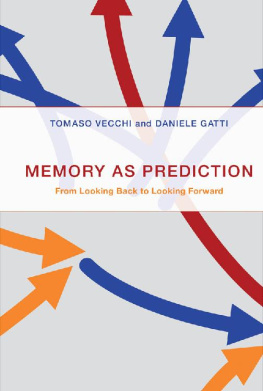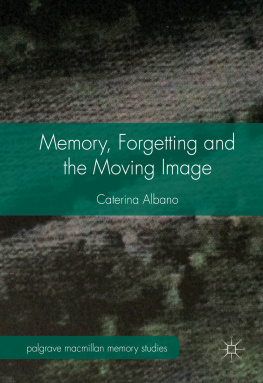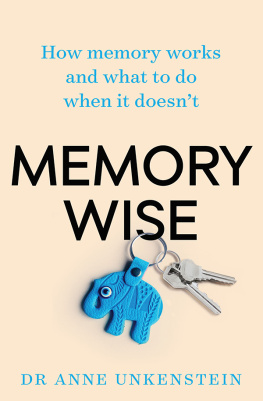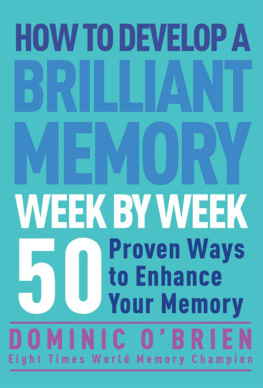Memory and age
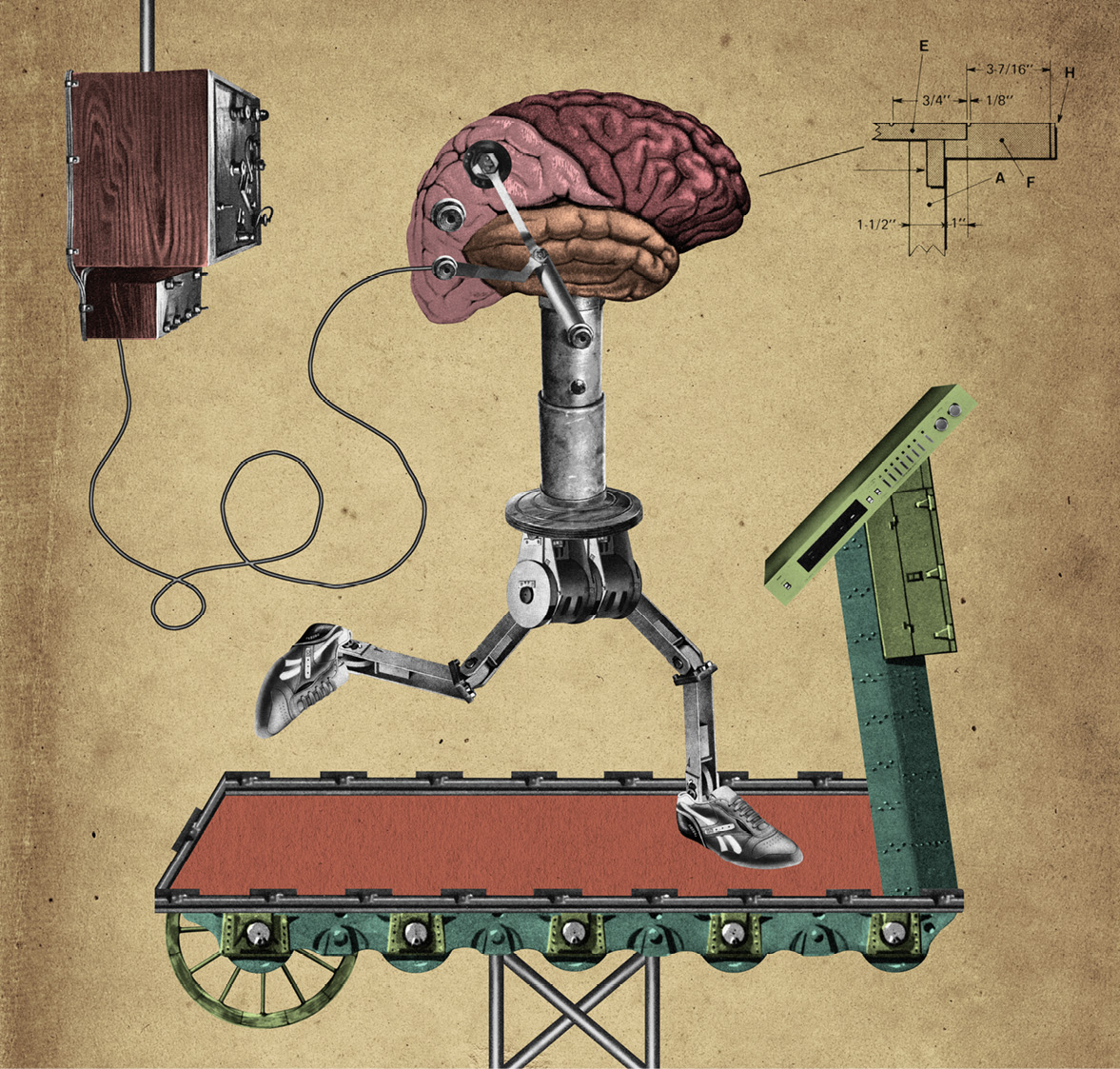
Older, wiser ... and sharper?
Contrary to popular belief, some aspects of memory actually improve with age. Jon Simons looks at the research
A worry shared by many older adults is that forgetfulness, which may feel increasingly pervasive as the years go by, will eventually lead to the loss of precious memories and the inability to remember new experiences in the future. The caricature of the older person as slow, rambling and confused is a familiar stereotype, reinforced by a media that often focuses on perceived age-related failings in public figures such as Ronald Reagan, Menzies Campbell and, more recently, Rupert Murdoch.
Evidence suggests that the stereotype of the forgetful older person can become a self-fulfilling prophecy, leading older adults to perform more poorly in memory tests. One recent study found that when older adults were read a paragraph describing research on age-related memory deficits, their subsequent memory was reduced for word lists they had learned previously. Thus, it is important to challenge the stereotype of inexorable age-related cognitive decline.
Instead, we should be focusing on scientific evidence which suggests that, while various components of memory are affected by age, other aspects can remain relatively well preserved. By capitalising on the cognitive abilities that are comparatively resistant to ageing, it may be possible for older adults to develop effective strategies to make the most of their memories.
Cognitive abilities
The ageing process is typically characterised by neural degeneration in a number of brain regions, most notably the frontal lobes. These areas, which comprise the front third or so of the brain, are associated with so-called higher cognitive abilities such as attention, planning, problem solving and processes that control how information is stored and retrieved from memory.
However, the brain may be more resilient to the ageing process than we previously thought. Studies have shown that the decrease in frontal-lobe activity may be accompanied by increased activation in other cortical regions. These changes may result in compensation (where preserved areas take over the function of declining regions), or might perhaps indicate a shift in the way older people perform some cognitive tasks.
For example, older adults are less likely than younger people to use strategies that promote the formation of rich, elaborate memory traces. Much evidence suggests that the use of these strategies can boost memory significantly. Thus, when older adults are explicitly encouraged to think deeply and elaborately about the meaning of information they are learning, it often results in better recall of that material.
Age-related impairments tend to be greater when the person is trying to recall information than when recognising the previously learned information alongside alternatives. This means that you may be more likely to remember someones name by saying various plausible possibilities to yourself and recognising the correct answer when you say it than if you try to pluck the persons name spontaneously out of thin air.
Attentional lapses
Another issue is that older people can be susceptible to attentional lapses, whereby a simple lack of attention during key moments can lead to forgetfulness. Failure to recall whether or not you switched off the gas before going to bed may not be due to a memory impairment, but to insufficient attention being paid when turning off the stove to successfully encode the action. Evidence suggests that such attentional lapses are an important contributor to the memory difficulties experienced by older adults. Studies have shown that when young adults are required to divide their attention between learning a word list and performing some other task, their ability to recall the list of words can resemble that of older adults who were paying full attention to the words.
Attentional lapses may be particularly likely to occur during the everyday activities that we tend to accomplish on autopilot. A useful strategy to counteract such absent-mindedness can be to develop a fixed method for performing such tasks: always place your keys in the same spot on the sideboard, always carry out the late-night errands in the same order (lock the back door, turn off the gas, turn off lights, etc).
Attentional lapses are not only an issue during the encoding of information into memory. Retrieval factors can also play a role, as exemplified in prospective memory the ability to remember to do something in the future.
We all experience the effects of unreliable prospective memory forgetting a scheduled meeting or failing to buy milk as promised. Such lapses can become more noticeable as we age. Older adults may complain of going into a room and being unable to remember what they went there for or, more seriously, failing to remember to take prescribed medication at the correct time.
Some evidence suggests that older people are less susceptible to prospective memory failures if the task involves carrying out an action when a specific external event occurs, rather than at a particular time in the future. Consequently, using external cues to trigger delayed intentions may be beneficial. So, rather than trying to remember to take medication at 7pm, leave the pills in a prominent place in the kitchen so that your memory will be triggered when preparing dinner. Or, if you want to remember to post a letter, place it by the front door so you will see it when leaving the house.
Source memory
Often, older adults can remember a fact or detail, but attribute it to an incorrect person, time or place. These so-called source memory impairments have been demonstrated in a variety of situations. It has been shown that when older adults listen to different speakers read statements aloud, their memory for the source of the statements is disproportionately reduced relative to their memory for the statements themselves.
Older adults often also have difficulty discriminating events they imagined from those that actually occurred (termed reality monitoring). This can have serious consequences, such as confusion over whether one has taken their medication or just thought about doing so.
However, evidence suggests that source memory can be relatively preserved when tasks capitalise on aspects of remembered information that older adults may place greater value on. One study showed that age-related source-memory impairments were diminished when instructions stated that one of the speakers always told the truth, whereas another speaker always told lies. It may be that older adults could enhance their ability to remember the source of information by ascribing values to the information and the person conveying it. So, thinking about the character of the person telling you a story, even if irrelevant to the story being told, might help you to remember who it was.
Ignore the hype
It is worth taking care over alternative solutions that claim to alleviate memory problems in older adults, despite how effective their proponents claim them to be. There is a great deal of hype about age-defying foods, herbal remedies and dietary supplements that can apparently boost brainpower. The internet and popular media are awash with suggestions that foods rich in omega-3 fatty acids (such as oily fish) can be beneficial for memory and can even reduce the risk of developing dementia. While a healthy, balanced diet is undoubtedly a good idea, the evidence for direct benefits associated with, for example, fish oil supplements, is much less clear.
Extravagant claims have also been made about the ability of herbal extracts such as ginkgo biloba to enhance memory function and protect against cognitive deficits associated with advancing age. However, for the most part, such claims are largely unproven and it is sensible to maintain a healthy degree of scepticism in the absence of evidence from properly controlled, randomised clinical trials.





